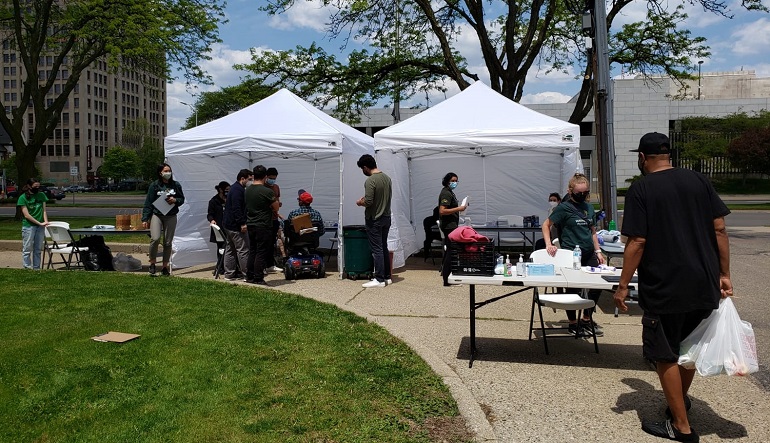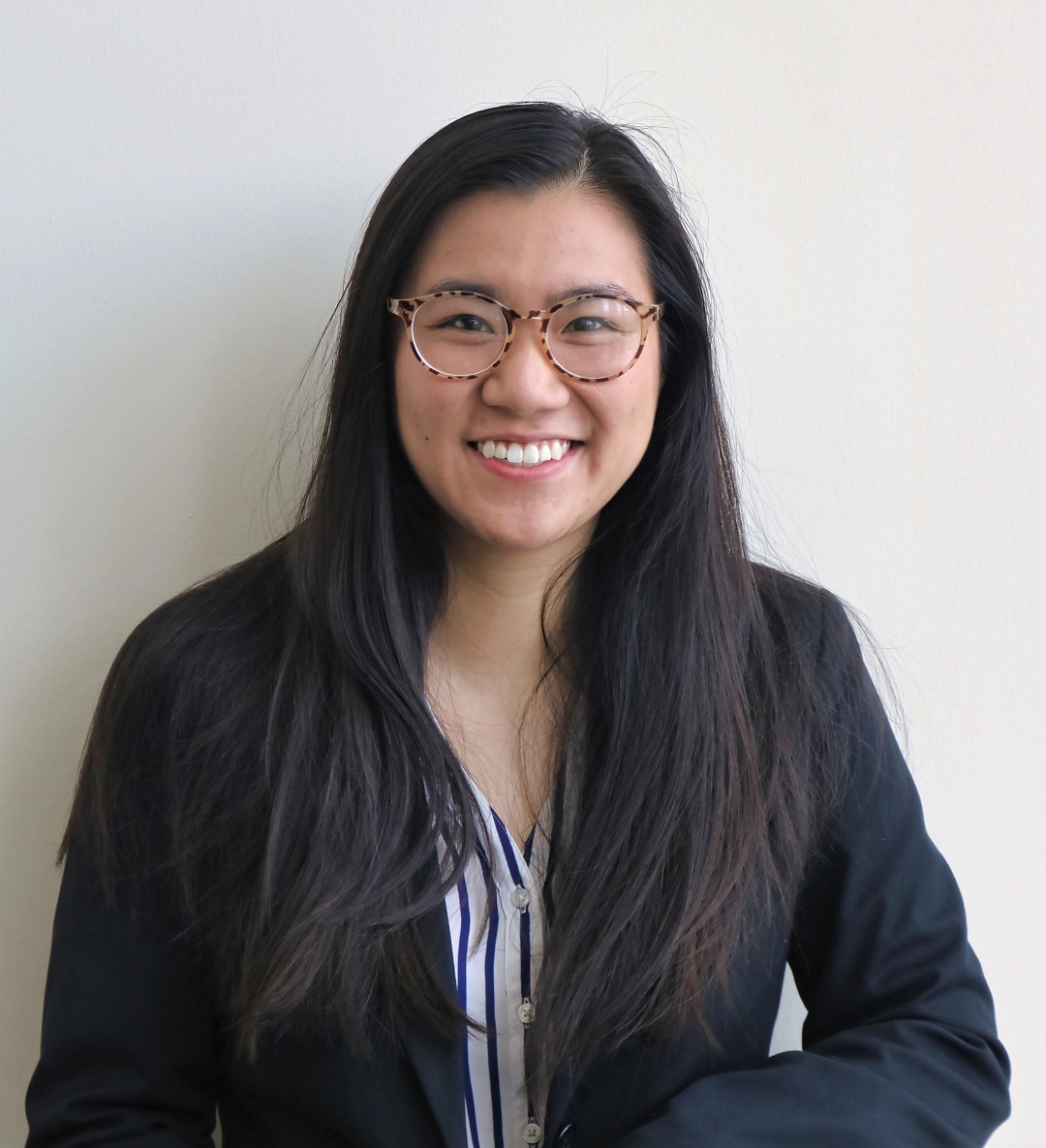
An evaluation of the services provided at the Wayne State University School of Medicine’s Community Homeless Interprofessional Program in Detroit, or CHIP, earned top honors at a meeting hosted by the Association of American Medical Colleges.
“Evaluation of a Patient Intervention Capture Survey Process in an Interprofessional Student-Run Free Clinic” was selected as the top-scoring poster by a student within the AAMC’s Central Group of Education Affairs’ Medical Education Scholarship Research and Evaluation Section.

Fourth-year medical student Eugenia Zeng presented her work at the group’s virtual meeting in April 2021. She admitted to being surprised by the win, and credited the excellent showing to the interdisciplinary aspect of the clinic. Her project focuses on a capture survey to track the services and referrals provided by medical, pharmacy, physical therapy and social work students at CHIP, a student-run free clinic that provided services for the homeless population. The survey documented interventions and how they changed over time.
“In this manner, the survey was also able to determine shortcomings, allowing improvement of the services offered to patients as well,” Zeng said. “After becoming a coordinator for the clinic, I wanted to be able to see the breadth of services offered and build on a system to better aid the homeless population.”
The CHIP clinic, located at the Cathedral Church of St. Paul on Woodward Avenue in Detroit, was developed and launched in 2014 as a collaboration between health professions students and faculty. It provides free care and resources for conditions such as hypertension, diabetes, respiratory disease, seizure disorders, mental health issues and substance use disorders.
“I think my project stands out because it focuses on interprofessional education within a student-run free clinic, which can encompass students in all aspects of health care,” Zeng said.
WSU is a member of the Central Group on Educational Affairs, dedicated to advancing medical education and medical educators through faculty development, curriculum development, educational research and assessment in undergraduate, graduate and continuing medical education.
CHIP leaders include School of Medicine Director of Community Engagement Jennifer Mendez, Ph.D.
“The patient intervention capture survey was developed because there are limited tools to assess interprofessional student-run free clinics. It captures medical education, medications, physical assessments and referrals to other providers by students at the Community Homeless Interprofessional Program’s free clinic,” Dr. Mendez said. “The work that Eugenia and other students have undertaken is going to help other student-run clinics determine the impact they are making.”
WSU students returned to the clinic May 16 – the first time since the COVID-19 pandemic began – and provided health care and referral services to nine patients.
“We plan to continue to use the survey to improve the clinic, focusing on the shortcomings of the survey and perhaps creating a new version. I would also like to start a different survey focusing on student education itself,” Zeng said.